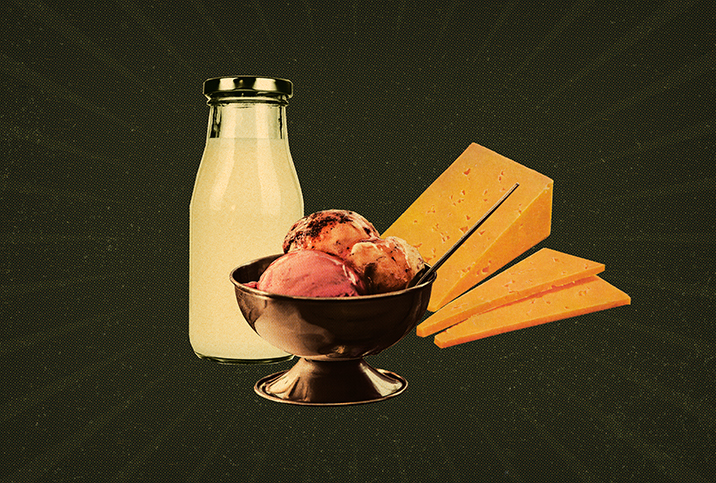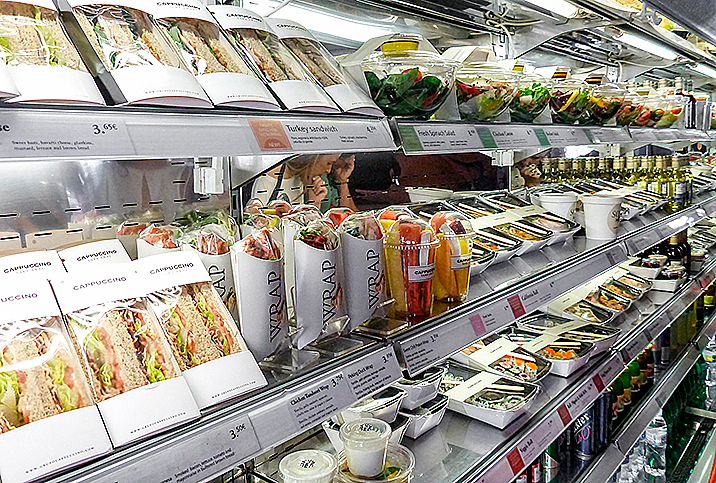Tips for Preventing and Improving Bad Nutrition

We often think about poor diet quality and bad nutrition in a silo, mostly just impacting our body weight. The reality is that the consequences of poor nutrition usually spill over into nearly all facets of our life, from physical and emotional health to our social and dating life to general well-being.
Here, experts provide some tips on how to prevent poor nutrition and support good nutrition. Find out how bad nutrition has a ripple effect on your overall quality of life.
Good or bad nutrition affects how you live
Habitually consuming a diet filled with processed foods, excess sugar, industrial oils, artificial ingredients and alcohol can impact how your body feels and performs. A bad diet can also affect how you function socially and emotionally during your daily life.
When we do not give our body the nutrients it needs, a wide range of complications can occur, depending on the type of imbalance involved, according to Kent L. Bradley, M.D., the chief health and nutrition officer at Herbalife Nutrition, based in Los Angeles.
Diet can affect how our body feels and performs on a daily basis, ultimately affecting the quality and longevity of our lives.
"At one end, it may be just a feeling of fatigue or lack of energy, to any number of system complications: immune, skeletal, cardiovascular, reproductive, and the list goes on," he said.
Tips for improving nutrition
Knowing the negative effects of a bad diet, how can you improve it?
A good first step toward preventing bad nutrition and supporting good nutrition is to simply pay more attention to what you eat on a daily basis and try to gradually shift to a healthier diet, according to Kimberly Gomer, M.S., a registered dietitian, licensed dietitian nutritionist and the director of nutrition at Body Beautiful Miami.
"Having people start to decrease their restaurant, fast-food and takeout meals, and instead prepare food at home, improves health and saves money," Gomer said. "Start by reducing, and eventually eliminating, sodas, chips, cookies, fried foods and junk. Replacing junk food with whole foods is key.
"Lean on meals that include protein and vegetables as the center of the meal, and whole grains and fruits, depending on carbohydrate tolerance, health and activity levels," she added.
Sit down to eat meals instead of eating on the run, and make the time and effort to prepare healthy food at home. This practice can help you make healthier, more mindful choices and stay present when you are eating, rather than just shoveling food into your mouth, hardly registering that you are even consuming food.
Use social media and the internet to your advantage. Social media has its downsides, but crowdsourcing platforms can be a great way to find user-vetted ideas and recipes for easy and healthy food preparation and meal and snack suggestions.
Challenge yourself to make small changes. You don't have to change everything at once, but commit to replacing a few unhealthy foods with healthy ones. Replace fried chicken and french fries with a rotisserie chicken, a baked sweet potato and steamed vegetables, Gomer suggested.
Aim to eat three meals a day: breakfast, lunch and dinner. And eat real food, not just a lot of snacks and treats. Structured meals consisting of real foods are more satiating and nourishing for the body, and can help your body recognize that you've indeed eaten and fueled up well, which can help cut back on mindless eating and never-ending grazing.
Tips for preventing bad nutrition
The first step to preventing poor nutrition is to educate yourself about the nuts and bolts of a healthy diet.
"Know how to read nutrition labels and understand ingredient lists. Look for excess sugar and avoid added sugars as much as possible," said Amy Shapiro, M.S., a registered dietitian and the founder and director of Real Nutrition in New York City. "Refrain from drinking sugary beverages, excessive alcohol. I would avoid fried food and fast food in excess."
She also suggested the following tips to support good nutrition:
- Eat whole foods first.
- Focus on adding more plants to your diet and add a variety of colors to your plate. If possible, add two cups of vegetables and/or fruit to every meal.
- Be sure to eat lean protein, such as eggs, chicken, turkey, grass-fed beef, seafood, beans, tofu and tempeh.
- Eat whole grains that contain fiber to help balance blood sugar levels.
- Consume healthy fats from plant sources that support heart health. Examples include avocados, nuts, seeds, olive oil and flaxseed oil.
- Limit added sugars to 100 calories per day for women and 150 calories per day for men.
- If needed, add supplements to your diet to fill gaps where your nutrition might not be as robust.
- Get daily physical activity to improve energy and blood flow, build and maintain muscle mass, and burn excess calories.
- Get adequate sleep. "Sleep has a huge effect on our food choices, metabolism and energy," Shapiro said.
Nutrition affects your dating life
People often put their diet into its own little box and view nutrition as a separate entity in their lives. However, the impact of your diet on your physical, mental and psychosocial health cannot be compartmentalized. The food you put into your body largely determines how your body feels and functions.
These effects can even extend to your dating life.
"At a very basic level, what we choose to eat can be a source of alignment or tension between individuals who are dating," Bradley noted.
In other words, if you are eating foods that conflict with what your prospective partner eats or feels like you should be eating, it can create social tension—but that's not all.
"Body image—how one feels about their health and body on the inside and outside—can affect self-confidence. When a person feels healthy, energetic and in a positive mood, they emit high vibes and a sexy attitude," Gomer said. "On the other hand, low self-esteem from physically feeling and looking out of shape can affect who we attract."
Good and bad nutrition can affect your dating life by enhancing or decreasing your energy, your attraction to others, your sexual performance and libido, and your confidence, Shapiro added. All of that can play out in sexual encounters and dating in general.
Resources for nutrition: vitamins and supplements
A variety of vitamins, minerals and dietary supplements can be taken in instances where you are unable to meet your nutritional needs through food sources. There are both composite (multivitamins) and individual vitamin and mineral supplements (vitamin C, zinc, iron, calcium and more).
Choosing the right dietary supplements—and whether you need nutritional supplements in the first place—is often a process best guided by the help of your physician or nutrition professional. They can use your bloodwork and a food diary to recommend supplements to meet your needs. For example, if labwork indicates your ferritin levels are low, an iron supplement may be recommended.
A lot of people who put in a concerted effort to eat better still lack many of the vitamins, nutrients and minerals they need. Supplementation can help, and a daily multivitamin is often recommended. Giddy Health offers a Multivitamin for Men and a Multivitamin for Women. Both are specially formulated for a healthy life and made with microbeads to ensure a slow release throughout the day.
Other options include dietary supplements in the form of protein powders, meal-replacement drinks and electrolytes. These may be beneficial for people who have trouble meeting their actual caloric or nutrient needs through food.
Working with a professional such as a physician or a registered dietitian is probably the best way to gauge whether your diet and lifestyle are combining to provide your nutritional needs.
Editor's note: These statements have not been evaluated by the Food and Drug Administration. Our medical experts advise that you consult your primary healthcare provider before you begin using a supplement. This information is not intended to diagnose, treat, cure or prevent disease.


















